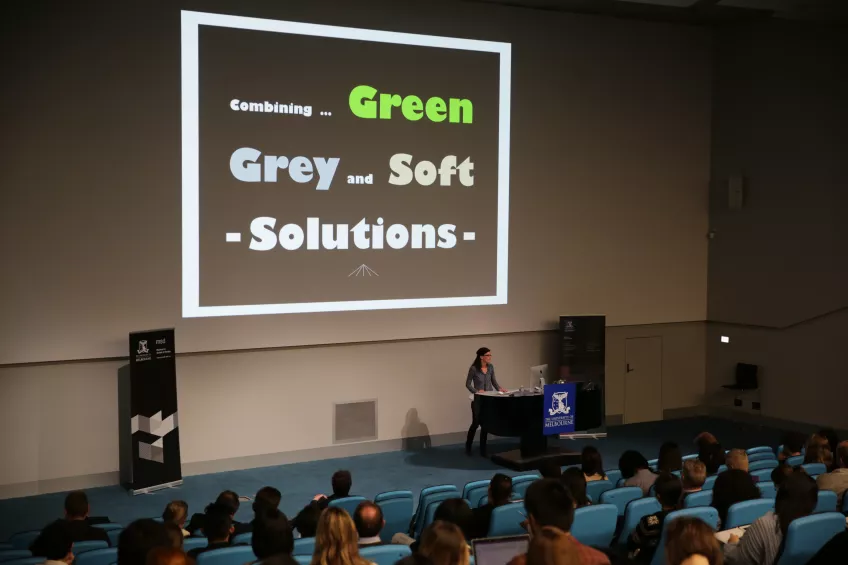NATURVATION
NATure-based Urban innoVATION
The European commission has recently granted funding for the Horizon2020 project “NATURVATION: NATure-based URban innoVATION”. Horizon 2020 is the biggest EU Research and Innovation programme.
NATURVATION was co-developed by researchers at Lund University (IIIEE, CEC and LUCSUS). At LUCSUS, this joint effort is coordinated by Professor Christine Wamsler.
Project partners
The 4-year project, consisting of a consortium of 14 institutions in the fields of urban development, geography, innovation studies and economics will start in December 2016 and will be funded by 7.8 million Euros. Besides Lund University, the project team coordinated by Durham University (Professor Harriet Bulkeley, UK) consists of the Central European University (Hungary), the Ecologic Institute gGmbH (Germany), ICLEI (Germany), the Institut für Landeskunde (Germany), the PBL Netherlands Environmental Assessment Agency (The Netherlands), Utrecht University (The Netherlands), Universitat Autònoma de Barcelona (Spain), ENT Environment and Management (Spain), the Centre for Economic and Regional Studies (Hungary), and the cities of Malmö (Sweden), Newcastle (UK) and Utrecht (The Netherlands).
Project summary
Nature-based solutions (NBS) have the potential to limit impacts of climate change, enhance biodiversity and improve environmental quality while contributing to economic activities and social well-being. Examples are green roofs and city parks that limit heat stress, city lagoons that store water and permeable surfaces, vegetation and rain gardens to intercept storm water. To unlock the potential of NBS for sustainable urban development, NATURVATION takes a transdisciplinary, internationally comparative approach to capture the multiple impacts and values of these solutions. Based on a comparison of more than 1000 NBS worldwide, and in-depth studies of 6 cities (Malmö, Newcastle, Utrecht, Leipzig, Barcelona, Györ), it identifies the most promising governance, business, finance and participation models and how to overcome the systemic conditions that currently limit their use. The real-world impact of NATURVATION is realized through co-design, co-development and co-implementation of new partnerships, knowledge, processes and tools required to build capacity, enable replication and foster cultural change. The NATURVATION Task Force (including UN-HABITAT, Arup, White Architects, Ramboll Living City Laboratory, Climate-KIC, the African Centre for Cities, the Environment Agency UK, The IPBES Indigenous and Local Knowledge Task Force and the University of Munich) will operate as a critical friend and ‘real world’ testing ground for the developed knowledge, recommendations, processes and tools to enable us to disseminate, replicate and embed this work internationally.
LUCSUS’ involvement in the project is mainly related to working package 4, which aims to analyse the dynamics and politics of NBS innovations in 12 European and 6 international cases. Emphasis is on the identification of patterns regarding: i) governance modes, ii) business/financing models, and iii) civic engagement.
News
New article (click here) and interviews with Kes McCormick, Helena Hanson and Christine Wamsler about the project. Click here.
Christine Wamsler recently visited Australia to give the prestigious Dean’s lecture at the Melbourne School of Design (MSD). She was invited to meet with researchers, practitioners and policy-makers in order to stimulate their work and open up a wider debate on urban adaptation and resilience, including nature-based solutions. For more information, the online lecture, and related interviews, please click here.
